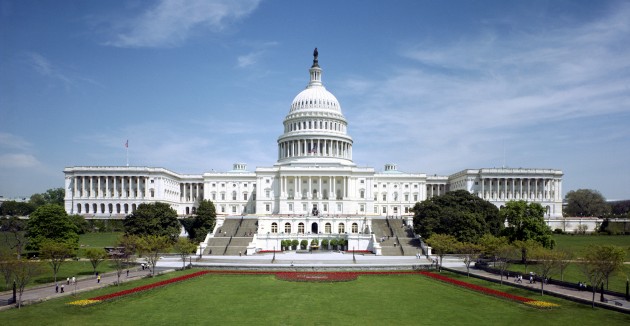Last night, I published my monthly updates for the Investing for Beginners site at About.com, a division of The New York Times. One of the articles I wrote has to do with something called Taxmageddon.
As the law stands now, in eight months, Americans will face one of the largest tax hikes in history, with much of the burden falling on the lower and middle classes. Payroll taxes increase, small business depreciation tax breaks go away, the Alternative Minimum Tax patch to prevent middle class families from being caught in a tax trap expires … that is just the beginning.
For investors, there are a lot of worrisome changes that, if not fixed, should drastically alter your behavior. The biggest is the potential increase in dividend tax rates, exploding from 15% to 43.4%. Keep in mind that is after your investment already paid its 35% tax to the government. In a worse case scenario, you could end up paying $63.21 in taxes for every $100.00 your business earned in profit, leaving you with only $36.79.

As the law currently stands, Congress is only eight months away from allowing Taxmageddon to happen, a slew of massive tax hikes that will go into effect, raising everything from the payroll tax paid by America's poorest workers to dividend taxes.
Hell will freeze over before most investors accept those terms so the market will adjust. If necessary, the market will adjust fast and hard. You will see an enormous shift to tax strategies such as asset placement, a rise in the use of self-directed IRAs to own shares of private limited liability companies, a fall in stock prices to make dividend yields more attractive relative to Treasury and bond yields, and a lowering of dividend payout levels at companies who then opt, instead, to buy back their own stock.
[mainbodyad]The problem with the last part is that many companies have terrible records when it comes to stock buybacks, purchasing at highs and then being forced to reissue shares at lows, destroying shareholder wealth. (Not everyone can be an ExxonMobil or AutoZone, though they should. Those two companies manage buybacks using discounted cash flow analysis programs that value what their business is worth and strive to only make repurchases when it makes shareholders richer. Their track records speak volumes about how well they manage capital.)
In any event, if Congress thinks a nearly 300% increase in the dividend tax rate is going to generate more revenue, they still haven’t learned anything about human nature. It isn’t going to happen. All it will accomplish is making Congress even more hated than they are now, and reward, once again, the people who can afford expensive advisors, accountants, and attorneys, making sure wealth grows by playing the system, not being productive.
The Dividend Tax Is a Problem Because of the Perception of Fairness
The dividend tax is infuriating because, as an owner of the business, I have already paid a tax at the corporate level. Economically, the government has already taken 1/3rd of the money my share of the business earned, then they want to tax me again. It seems fundamentally unfair. It isn’t even the tax rate, it is the perception of theft by continuously taking bites at the apple.
If you want to stop the casino stock market, it can be done. You’d just have to set short-term capital gains tax rates to 50% or 80% on any shares held less than 12 months, and then make dividends tax-deductible at the corporate level, charging personal income taxes to the investors who own them. In other words, it would be almost exactly like REITs are structured now, only there would be no minimum dividend payout required to trigger the tax treatment.
Such a system would result in far more payouts for companies like Procter & Gamble, which returns most of the earnings to stockholders. Those stockholders would then have to pay taxes on any dividends they receive, even if those dividends are within a tax-advantaged account. It would be hard to implement at first due to the existing 401(k) and IRA structures but you would create an incentive system whereby people tried to make money from owning a business, rather than renting its stock. Business managers would face tremendous pressure to return money to the rightful owners.
In the end, Congress is going to turn all of us into Mitt Romney’s, holding our ownership of businesses through IRA accounts so we don’t have to pay any taxes, then forcing the middle and lower classes to cover the burden. That is what happens when you overreach and treat people like geese to be plucked rather than citizens paying their part. Not even the socialist nations in Europe tax dividends this ruthlessly. And you wonder why investors keep taking money and moving it overseas instead of creating jobs here at home? It seriously remains a mystery to you?
[mainbodyad]



